Meet PIs
Christos Davatzikos is the Wallace T. Miller Sr. Professor of Radiology at the University of Pennsylvania, and Director of the Center for Biomedical Image Computing and Analytics. He holds a secondary appointment in Electrical and Systems Engineering at Penn, as well as at the Bioengineering and Applied Mathematics graduate groups. He obtained his undergraduate degree from the National Technical University of Athens, Greece, and his PhD degree from Johns Hopkins on a Fulbright scholarship. He then joined the faculty in Radiology and later in Computer Science, where he founded and directed the Neuroimaging Laboratory. In 2002 he moved to University of Pennsylvania, where he founded and directed the section of biomedical image analysis. Dr. Davatzikos’ interests are in medical image analysis. He oversees a diverse research program ranging from basic problems of imaging pattern analysis and machine learning, to a variety of clinical studies of aging and Alzheimer’s disease, schizophrenia, brain cancer, and brain development. Dr. Davatzikos has served on a variety of scientific journal editorial boards and grant review committees. He is an IEEE fellow, and a fellow of the American Institute for Medical and Biological Engineering.
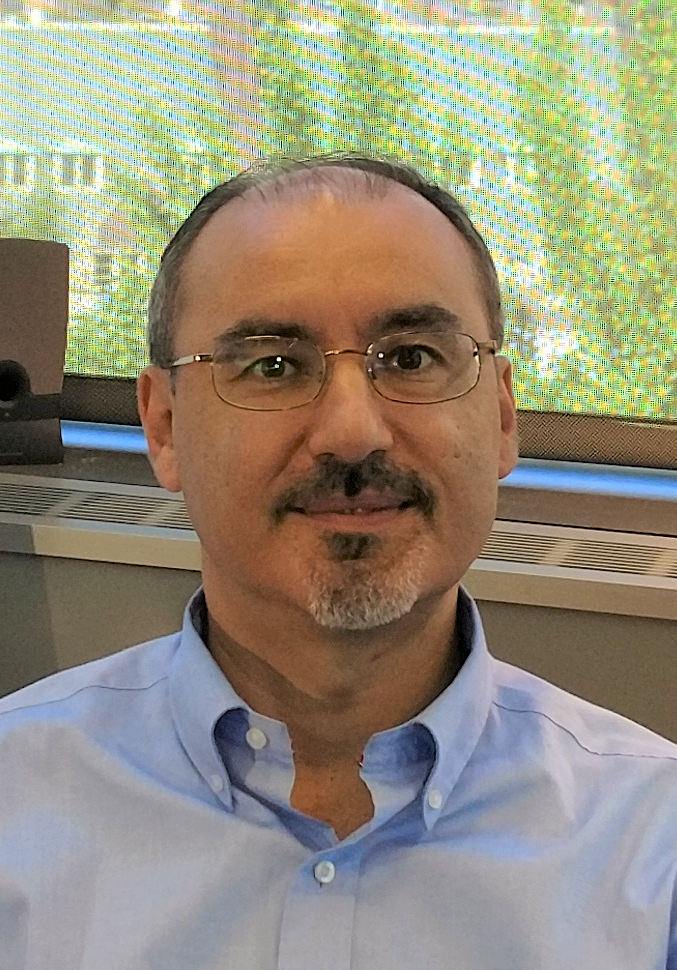
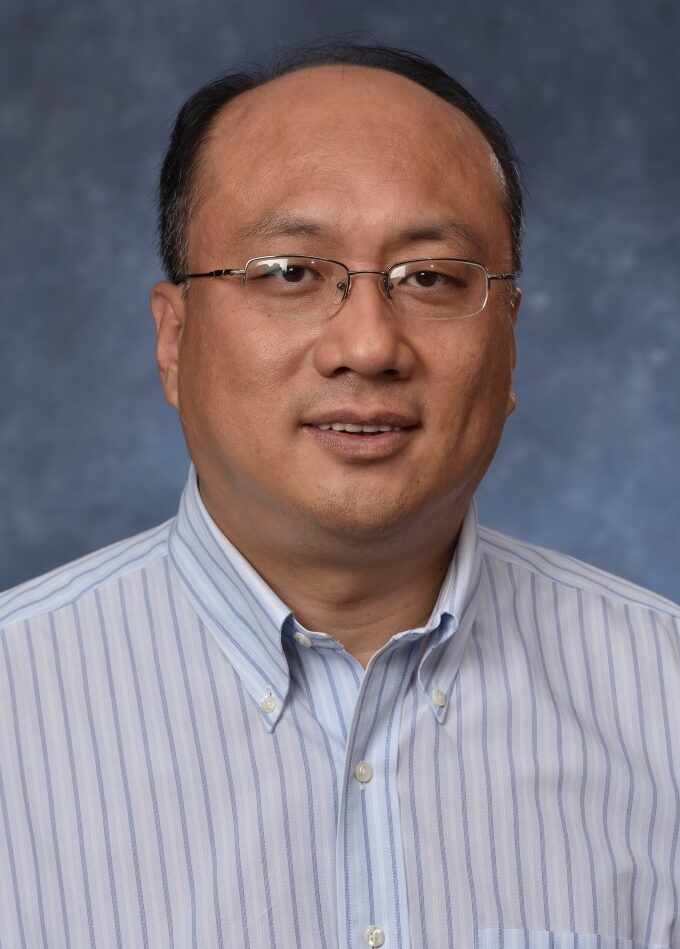
Dr. Heng Huang is the John A. Jurenko Endowed Professor in Computer Engineering at the University of Pittsburgh, and also the professor in Biomedical Informatics Department at the University of Pittsburgh Medical Center. He received the PhD degree in Computer Science at Dartmouth College. His research areas include machine learning, data mining, bioinformatics, neuroinformatics, and precision medicine. As a pioneer researcher in machine learning and biomedical data science, he has published more than 230 papers in top-tier conferences and many papers in premium journals, such as NeurIPS, ICML, KDD, RECOMB, ISMB, IJCAI, AAAI, CVPR, ICCV, SIGIR, Bioinformatics, TPAMI, JMLR, TMI, Medical Image Analysis, etc. He is leading multiple NSF funded projects and NIH R01/U01 projects on big data mining, machine learning, imaging genomics, electronic medical records mining and privacy-preserving, computational biology, smart healthcare, cyber physical system. He served as the Program Chair of ACM SIGKDD 2020. He is a fellow of the American Institute for Medical and Biological Engineering.
Andrew Saykin is a Professor of Radiology and Imaging Sciences and Professor of Medical and Molecular Genetics at The Indiana University School of Medicine. Dr. Saykin received his undergraduate degree from University of Massachusetts, Amherst and his MS and PsyD from Hahnemann Medical College, Philadelphia. His expertise lies in the areas of multimodal neuroimaging research, cognitive neuroscience (board certified in clinical neuropsychology) and human genetics. He has a longstanding interest in the structural, functional and molecular substrates of cognitive deficits in Alzheimer’s disease and memory, as well as cancer, brain injury, schizophrenia, multiple sclerosis and other disorders. His current research program is focused on integrating advanced brain imaging and genomic data to enhance the understanding of disorders affecting memory in older adults with a special focus on the relationship among brain, gene and protein/metabolite networks. He currently serves as Director of the Indiana Alzheimer’s Disease Research Center, as well as the leader of the Neuroimaging Core and the Administrative Core. The he is also the leader of the Alzheimer’s Disease Neuroimaging Initiative (ADNI) Genetics Core, and serves as an investigator in multiple NIA collaborations (ADGC, ADSP, AMP-AD, AD Metabolomics Consortium and MODEL-AD), and MRI co-lead for the multicenter NCAA-DoD CARE Concussion Consortium. Dr. Saykin is the cofounder of the IU Network Science Institute and the founding Editor-in-Chief of Brain Imaging and Behavior, a Springer-Nature journal

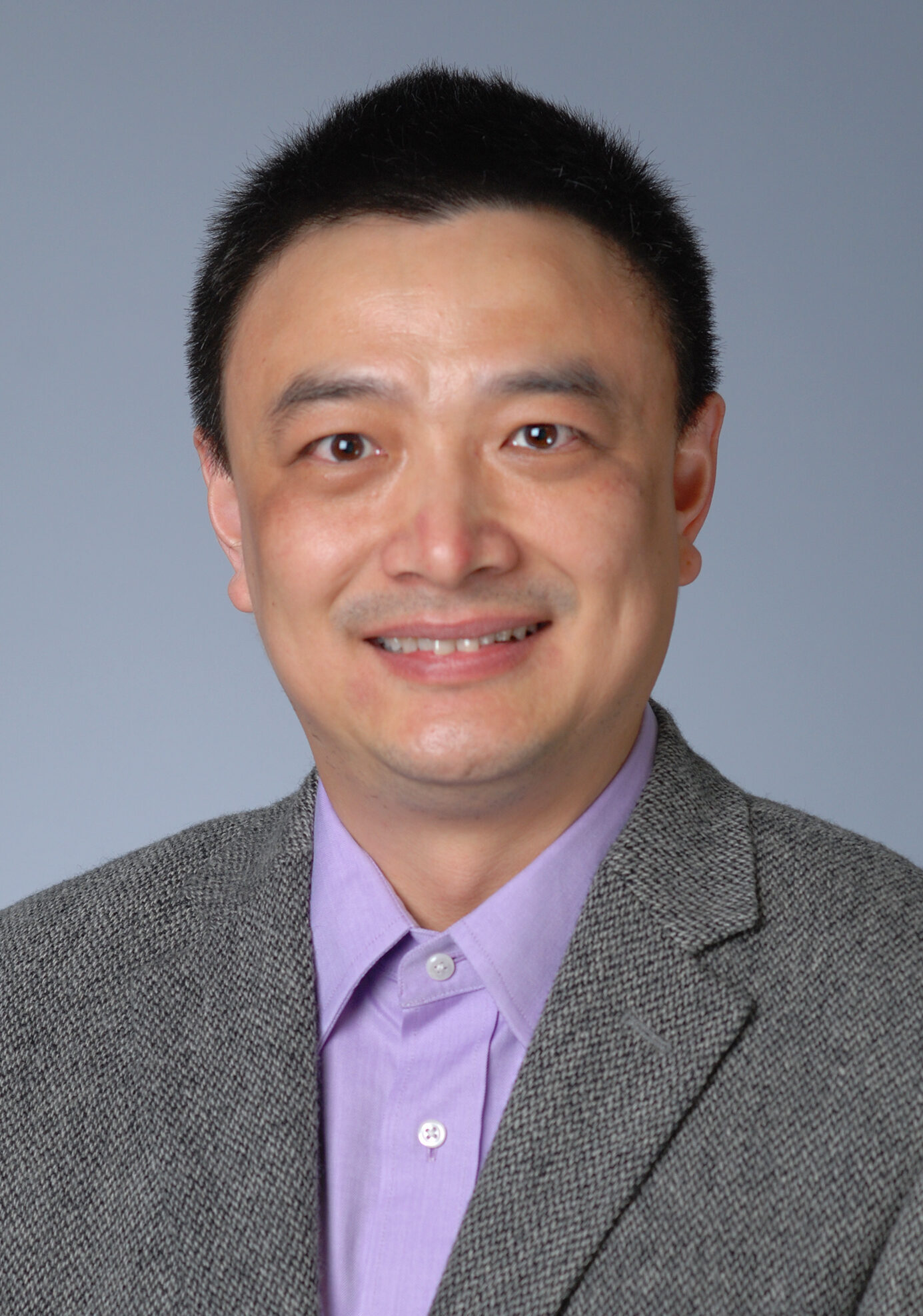
Li Shen is a Professor of Informatics in the Department of Biostatistics, Epidemiology and Informatics at the Perelman School of Medicine in the University of Pennsylvania. He obtained his Ph.D. degree in Computer Science from Dartmouth College. His research interests include medical image computing, biomedical informatics, machine learning, network science, imaging genomics, multi-omics and systems biology, Alzheimer’s disease, and big data science in biomedicine. He has authored over 280 peer-reviewed articles in these fields. His work has been continuously supported by the NIH and NSF. His current research program is focused on developing computational and informatics methods for integrative analysis of multimodal imaging data, high throughput omics data, cognitive and other biomarker data, electronic health record (EHR) data, and rich biological knowledge such as pathways and networks, with applications to complex disorders such as Alzheimer’s disease. He has served on a variety of scientific journal editorial boards, grant review committees, and organizing committees of professional meetings in medical image computing and biomedical informatics. He served as the Executive Director of the Medical Image Computing and Computer Assisted Intervention (MICCAI) Society between 2016 and 2019. He is a fellow of the American Institute for Medical and Biological Engineering.
Paul Thompson directs the Imaging Genetics Center and is Associate Director of University of Southern California’s Stevens Institute for Neuroimaging and Informatics. At USC, he is a Professor of Neurology, Psychiatry, Radiology, Pediatrics, Engineering, and Ophthalmology. Dr. Thompson obtained his MA in Mathematics and Greek & Latin Languages from Oxford University, England, and his PhD in Neuroscience from UCLA. Since 2009, Dr. Thompson directs the ENIGMA Center for Worldwide Medicine, Imaging & Genomics, a U.S. National Center of Excellence for “Big Data” analysis in biomedical research. ENIGMA is a worldwide medical network of 1,000 institutions across 45 countries studying the major diseases of the brain, with MRI, diffusion MRI, resting state fMRI, EEG and genomics, and has published the largest neuroimaging studies of 10 major brain disorders and conditions – including PTSD, schizophrenia, bipolar disorder, major depression, ADHD, autism, and OCD. In ENIGMA’s papers in Science and Nature, 340 institutions pooled DNA and MRI data from over 50,000 people to identify over 200 genomic loci that influence the rates of brain development, aging, and disease risk, using massively-parallel distributed “big data” computing. Dr. Thompson’s group created the first MRI maps of Alzheimer’s disease and schizophrenia spreading in the living brain, and a method to detect brain growth in children (published in Nature). Click here for Dr. Thompson’s website.

CoPIs
Liana G Apostolova, MS, MD, FAAN
Liana Apostolova is the Barbara and Peer Baekgaard Professor of Alzheimer’s Disease Research at Indiana University School of Medicine. She graduated Summa cum Laude from the Medical University, Sofia, Bulgaria, and completed Neurology residency training at University of Iowa and Dementia fellowship at UCLA. Dr. Apostolova’s research focuses on the early symptomatic and pre-symptomatic stages of AD and on the development of sensitive imaging and genetic biomarkers for AD and other dementing disorders. Dr. Apostolova is the Lead Principal Investigator of the Longitudinal Early-Onset Alzheimer’s Disease Study (LEADS) – a multisite national consortium focused on early-onset AD, a rare form of Alzheimer’s that affects middle-aged individuals.
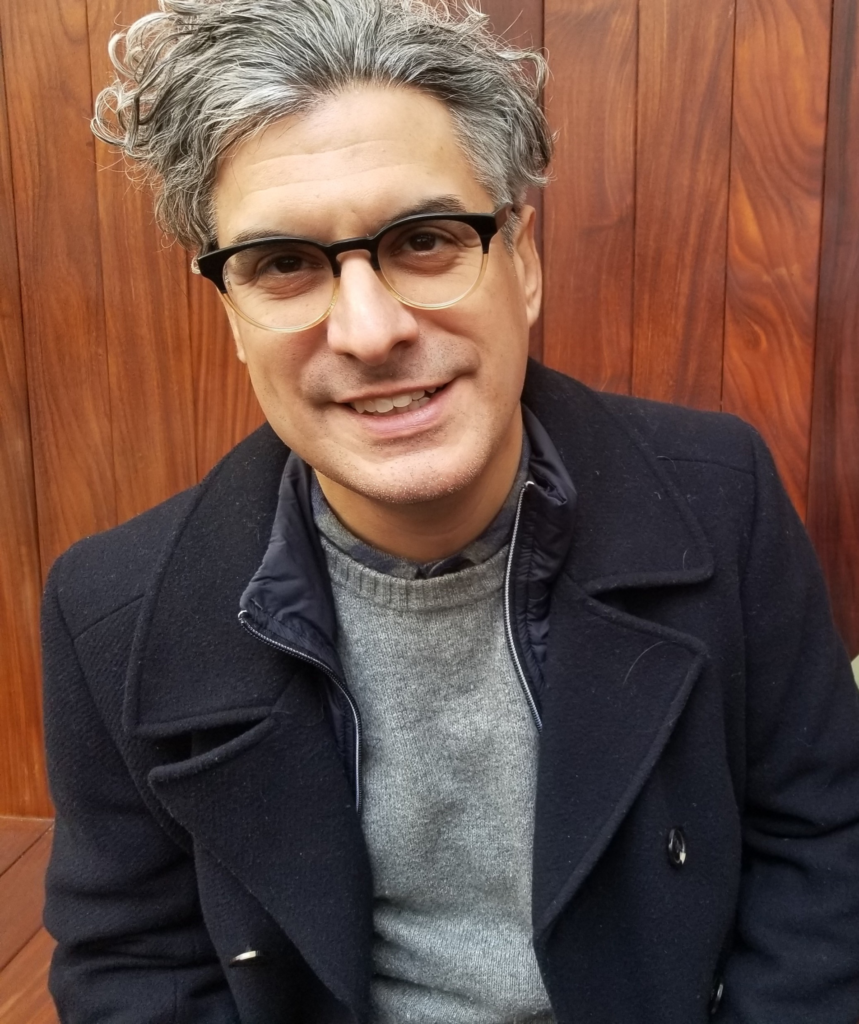
Adam M. Brickman, PhD
Adam Brickman is a Professor of Neuropsychology in the Department of Neurology, the Taub Institute for Research on Alzheimer’s Disease and the Aging Brain and the Gertrude H. Sergievsky Center at Columbia University Medical Center. Dr. Brickman received his PhD from the City University of New York, and completed his fellowship at the NewYork-Presbyterian Hospital/Columbia University Medical Center. Dr. Brickman uses advanced neuroimaging techniques to understand cognitive aging and dementia. He is particularly interested in white matter abnormalities and the intersection between vascular disease and Alzheimer’s disease. His current research efforts focus primarily on “normal” cognitive and structural changes across the adult lifespan. Specifically, he uses structural magnetic resonance imaging (MRI) to try to identify specific areas in the brain or coordinated patterns of brain tissue that are most vulnerable to the effects of age.

Paul Crane, MD, MPH
Paul Crane is a Professor of Medicine and Adjunct Associate Professor in the Department of Health Services at The University of Washington. He is also an Affiliate Faculty of the Group Health Research Institute and Multiple PI of the Adult Changes in Thought (ACT) Study. Dr. Crane serves as a liaison to national and international genetics initiatives, including the Alzheimer’s Disease Genetics Consortium (ADGC) and the Alzheimer’s Disease Sequencing Project (ADSP). A major area of focus of Dr. Crane’s laboratory in the past few years has been applying modern psychometric methods to cognitive data from older adults. As a psychometrics core, they harmonize and co-calibrate memory, executive functioning, language, and visuospatial functioning for several different parent projects, particularly those planning to analyze genetic data together with cognitive data.

Logan Dumitrescu, PhD, MS
Logan Dumitrescu is a Research Assistant Professor of Neurology at Vanderbilt University Medical Center and a computational geneticist focused on characterization of common genetic variants that influence common diseases and phenotypes. Dr. Dumitrescu earned a BS in Biological Sciences from Vanderbilt University. She continued her training at Vanderbilt, where she earned an MS in Applied Statistics and a PhD in Human Genetics. Dr. Dumitrescu is a faculty member of the Vanderbilt Memory and Alzheimer’s Center (VMAC). As part of the VMAC team, Dr. Dumitrescu leverages advanced statistical approaches and computational ‘omics to identify novel treatment targets for Alzheimer’s disease. Dr. Dumitrescu’s work included building strong phenotypes using neuroimaging, fluid biomarkers, and cognitive data, and then leveraging those phenotypes to identify molecular drivers of disease. She is also interested in the heterogeneity of AD, including the comorbid neuropathologies that commonly occur with disease (e.g., cerebrovascular disease) and the well-characterized sex and racial/ethnic disparities in AD. Dr. Dumitrescu’s research aims to characterize the molecular and genetic factors that contribute to risk and resilience from AD.

Laura E Gibbons, PhD
Laura Gibbons is a Senior Research Scientist at UW General Internal Medicine department. Dr. Gibbons is a biostatistician specializing in measurement issues in cognitive aging and has over decades of experience working with complex data sets. She has been on the program committee and teaching faculty for the annual Advanced Psychometric Methods in Cognitive Aging Research Conference from 2005 to the present, and consults with researchers around the world on how to improve the measurement of cognition. As a core biostatistician for the UW Alzheimer’s Disease Research Center (ADRC) Data Management and Statistics Core, Gibbons works on a variety of issues related to study design and analyses.
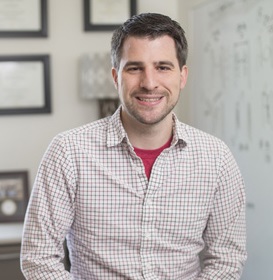
Timothy J Hohman, PhD
Timothy Hohman is an Associate Professor of Neurology at Vanderbilt University Medical Center, a cognitive neuroscientist, and computational geneticist. Dr. Hohman’s research leverages advanced computational approaches from genomics, proteomics, and neuroscience to identify novel markers of Alzheimer’s disease risk and resilience. He is the Director of the Biomarker Core for the Vanderbilt Memory and Alzheimer’s Center (VAMC), director of the Genomics Core for the Preclinical Alzheimer’s Disease Consortium, and is co-chair of the Alzheimer’s Disease Sequencing Project (ADSP) Phenotype Harmonization Consortium.

Neda Jahanshad, PhD
Neda Jahanshad is an Associate Professor of Neurology at the University of Southern California. She holds undergraduate degrees from Johns Hopkins University and a PhD from University of California, Los Angeles. Dr. Jahanshad has over ten years of experience in analyzing brain scans from large groups of individuals, and comparing MRI scans of people with and without brain disorders of all ages. Much of her research explores the brain as a network of interconnected pathways using diffusion-weighted MRI, a technology that reveals physical connections between different functional areas of the brain. Dr. Jahanshad is a key developer for the ENIGMA consortium, which brings together hundreds of researchers around the world. These researchers work together to identify the genetic and environmental risk factors that make the brain susceptible to disease.

Taeho Jo, PhD
With a solid background in software development and programming, which Taeho Jo gained as a software engineer at Adobe, as well as seven years of full-time graduate training at the Tokyo Medical and Dental University, he has a strong knowledge base in Molecular Biology, Biochemistry and Computational Biology. As a full-time research student, he developed a rehabilitation system for patients with Alzheimer’s, and as a graduate student, he applied computational methods to find ATPase inhibitors. After receiving his PhD, Dr. Jo pursued Computational Medicine and Bioinformatics through postdoctoral studies at RIKEN, the University of Missouri, the University of Michigan and the University of Texas, Arlington. In 2015, he published “Improving Protein Fold Recognition by Deep Learning Networks” in Nature Scientific Report with Dr. Jianlin Cheng, and in 2017, The Economist reported this work to be a frontier example for applying a deep learning method to determine a protein’s shape. In 2017, he published a book, Deep Learning for Everyone, and in 2020, Deep Learning for Everyone: 2nd revision, which is now widely read and cited by researchers and practitioners interested in using deep learning models in their research and work. Since March 2018, Dr. Jo has been performing research on diagnostic classifications of AD using deep learning on neuroimaging data at the Indiana Alzheimer’s Disease Research Center (ADRC) and the Indiana University Center for Neuroimaging.
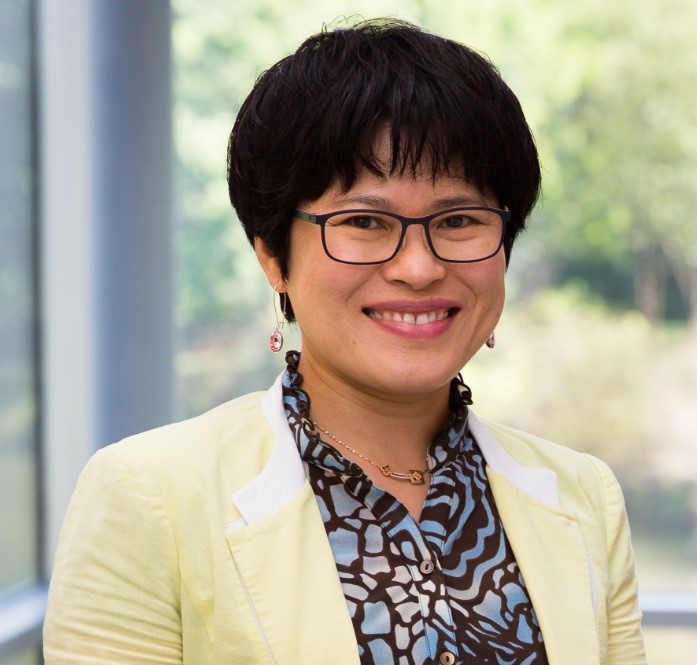
Gyungah Jun, PhD
Gyungah Jun is an Assistant Professor at the Biomedical Genetics Section, Boston University School of Medicine and an expert on analysis of big genetic/genomic data and data driven drug discovery research. She obtained two Master’s degrees in Microbiology & Immunology and in Computer and Information Science, and a PhD in Genetic Epidemiology. Before academic appointment, she worked as a database developer and manager for a central database handling data and biospecimens in a multi-ethnic genetic consortium at Case Western Reserve University. She joined the BUSM in 2009 as a Research Assistant Professor and was promoted to Assistant Professor in 2012. Before accepting an industry position in 2015, she has been a core investigator of national and international consortia including the Alzheimer’s Disease Genetics Consortium (ADGC), the International Genomics of Alzheimer’s Project (IGAP), and Alzheimer’s Disease Sequencing Project (ADSP). She has led two Workgroups in these consortia, APOE and multi-ethnic projects. From 2015 to 2018, she served as a Director and Head of Neurogenetics and Integrated Genomics for Andover Innovative Medicines (AiM) Institute, Eisai Inc, where she developed AD drug discovery projects using novel therapeutic concepts or repurposing existing the company’s drugs using human genetics and genomics data integrated with experimental functional genomics data. She also established an open innovation project between the company and BUSM in this period. She rejoined BUSM in 2018, and her current and future researches focus on the following areas which are currently funded by National Institute on Aging: (1) development of therapeutics mimicking APOE2 protective mechanisms against AD, (2) genome guided target prioritization and drug repurposing in AD therapeutics, (3) ethnic diversity research for a large Asian Cohort for Alzheimer’s Disease (ACAD) consortium to recruit and study genetic and non-genetic risk factors for AD using Asian Americans in US and Canada in collaboration with the ADGC, and (4) precision medicine and integrated omics profiling in blood and brain in the Framingham Heart Study Brain Aging Program (FHS-BAP).

Dokyoon Kim, PhD
Dokyoon Kim is an expert of biomedical informatics in methods development for data integration using machine learning and other analytic challenges. Starting in 2016, he served as an Assistant Professor in the Biomedical & Translational Informatics Institute at Geisinger Health System. After that, Dr. Kim joined the University of Pennsylvania. His research entails the development and application of data integration approach to improve the ability to diagnose, treat, and prevent complex diseases. His primary focus lies in integrating multi-omics data, biological knowledge, and imaging data to better translate genomic and biomedical data from electronic health records (EHR) into clinical products. His projects have been both theoretical and applied, and they include developing novel data integration methods that combine multi-omics data and biological knowledge, predicting clinical outcomes based on interactions between multi-omic features, integrating multi-modal neuroimaging and multi-omics data, and identifying gene-gene (GxG) and gene-by-environment (GxE) interactions in several phenotypes/diseases. He plans to continue his work in these areas, focusing primarily on providing actionable clinical products based on inter-plays within/between different dimensional genomic data. In particular, his long-term research goal is to develop and evaluate sophisticated data integration methods that simultaneously combine peoples’ individual variations in genomic (‘omic) data, imaging data, phenotype data from EHR, and environment/lifelog data for advancing precision medicine.
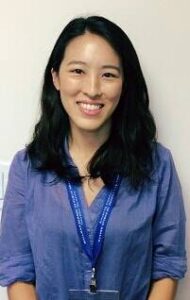
Annie J Lee, PhD
Annie Lee is a biostatistician and instructor at the Department of Neurology at Columbia University. Her research focuses on developing and applying data-driven approaches to understand neurodegenerative diseases such as Alzheimer’s disease and Parkinson’s disease. She received her PhD in Biostatistics from Columbia University. During her graduate studies, she developed methods to estimate personalized age-specific risk of neurodegenerative disease from each individual’s unique biomarkers using family history data. Her research has also focused on identifying genetic variants in Alzheimer’s disease. Since joining the Department of Neurology, she has been leveraging multi-omics data to explore the associations between genetic risk factors and aging-related traits.

Richard Mayeux, MD
Richard Mayeux is the Gertrude H. Sergievsky Professor of Neurology, Psychiatry and Epidemiology, chair of the Department of Neurology at Columbia University College of Physicians and Surgeons, and Neurologist-in-Chief at New York-Presbyterian/Columbia University Medical Center. Dr. Mayeux is also director of the Gertrude H. Sergievsky Center, a center devoted to the epidemiologic investigation of neurological diseases, and co-director of the Taub Institute for Research on Alzheimer’s Disease and the Aging Brain at Columbia University Medical Center. Dr. Mayeux graduated from the University of Oklahoma School of Health Sciences and trained in Internal Medicine at the Boston City Hospital and in Neurology at the Columbia Presbyterian Medical Center in New York. He completed a fellowship in the study of disorders of behavior, language, and cognition with the late D. Frank Benson in Boston. Dr. Mayeux completed graduate work in epidemiology at the Columbia University Mailman School of Public Health, and has led a multidisciplinary, population-based investigation of Alzheimer’s disease and related disorders known as the Washington Heights-Inwood Community Aging Project (WHICAP) since 1989. Utilizing this WHICAP population, he and his colleagues were among the first to integrate genetic risk factors and epidemiological principles in an attempt to identify biological markers of susceptibility to degenerative diseases of the aging nervous system.

Corey T McMillan, PhD
Corey McMillan is a Research Assistant Professor at the University of Pennsylvania. Dr. McMillan’s lab, the Penn Bioinformatics in Neurodegenerative Disease (BiND) Lab, overall mission is to use multimodal and bioinformatic approaches to improve our understanding of the biological basis of age-associated neurodegenerative conditions like Alzheimer’s disease, Frontotemporal Degeneration, and Amyotrophic Lateral Sclerosis. By testing biologically-grounded hypotheses with the use of novel analytic and multimodal approaches, the Penn BiND lab integrates neuroimaging modalities with genomics and clinical datasets to address the biological basis of heterogeneity within and across neurodegenerative diseases.

Jesse Mez, MD, MS
Jesse Mez is an Associate Professor of Neurology at Boston University. Dr. Mez completed his undergraduate studies at Cornell University and earned his medical degree from the University of Maryland School of Medicine. He completed residency training in Neurology at Massachusetts General and Brigham and Women’s Hospitals. He completed a clinical fellowship in Aging and Dementia and a research fellowship in Neuroepidemiology at Columbia University. During fellowship training, he also earned a Masters in Biostatistics with a focus on Statistical Genetics from the Mailman School of Public Health at Columbia. In 2014, he became Associate Director of the BU Alzheimer’s Disease Center (ADC) Clinical Core.
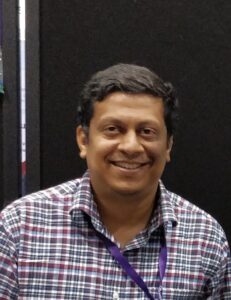
Shubhabrata Mukherjee, PhD, MS
Shubhabrata Mukherjee is a Research Assistant Professor at the University of Washington Department of Medicine, Division of General Internal Medicine, and an ADRC Affiliate Member. Dr. Mukherjee is trained in statistics, psychometrics, and genetics related to Alzheimer’s disease research. His substantive areas of research are the genetics of AD with focus on neuropsychological and neuropathological endophenotypes associated with older adults. He is an active member of the AD Genetics Consortium (ADGC).

Kwangsik Nho, PhD
Kwangsik Nho is an Associate Professor of Radiology and Imaging Sciences at Indiana University School of Medicine and a member of the IU Center for Neuroimaging, the IU Network Science Institute, the Indiana ADRC, BioHealth Informatics, and the IU Center for Computational Biology and Bioinformatics. His PhD is in computational physics, and he completed a National Library of Medicine (NLM) Biomedical Informatics (BMI) fellowship at the Regenstrief Institute and the IU Center for Neuroimaging at IUSM. His research expertise is in the areas of bioinformatics, imaging informatics, and medical informatics. His career goal is to integrate bio-medical and imaging informatic strategies in order to systematically explore relationships between multi-omics and brain pathology measured from multi-modal imaging and biofluids in AD. Dr. Nho completed a NIH NLM K99/R00 Pathway to Independence Award and is now PI of a NIH R01 grant award and a Co-I of multiple NIH grants including the ADNI Genetics Core and the ADMC.

Shannon L Risacher, PhD
Shannon Risacher is an Assistant Professor of Radiology & Imaging Sciences at the Indiana University School of Medicine. Her main research interest is in identifying biomarkers for early detection of Alzheimer’s disease pathology before clinical symptoms. Although she primarily evaluates neuroimaging measures from MRI and PET techniques, she has significant interest in developing novel biomarkers she is particularly interested in visual, olfactory, and other sensory measures as potential biomarkers of AD pathology in early stages of disease. Her research interests also include studying the impact of co-morbid medical and lifestyle factors, including vascular diseases, medications, and diet and exercise, on risk for and neuroimaging biomarkers of dementia, and identifying and evaluating genetic variations that are associated with AD pathology using biomarkers as endophenotypes.

Lauren E. Salminen, PhD
Lauren Salminen is an Instructor of Research Neurology at the Mark and Mary Stevens Neuroimaging and Informatics Institute at the University of Southern California. Dr. Salminen received her PhD in neuropsychology and behavioral neuroscience from the University of Missouri in St. Louis, and completed her postdoc in neuroimaging at USC. Dr. Salminen’s research uses advanced methods in structural and diffusion MRI, big data, and machine learning to understand the role of psychological distress and environmental toxins (e.g., air pollution, secondhand smoke) as critical drivers of suboptimal brain health in older adults. She is particularly interested in using advanced modeling techniques to identify multi-level interactions between sociodemographics, mental health, lifestyle, and environment exposures that can be visualized in the brain and translated to personalized risk profiles for Alzheimer’s disease and cerebrovascular syndromes.

Haochang Shou, PhD
Haochang Shou is an Associate Director of Penn Statistics in Imaging and Visualization Endeavor (PennSIVE) and core faculty member at the Center for Statistics in Big Data (CSBD) at University of Pennsylvania. She obtained her BSc in Statistics from Peking University in China and PhD in Biostatistics from Johns Hopkins University. She was a pre-doctoral visiting fellow at the National Institute of Mental Health between 2013-2014. Since arrival at the University of Pennsylvania as an Assistant Professor of Biostatistics at the Department of Biostatistics, Epidemiology and Informatics, she has been particularly focusing on developing novel functional data analysis and machine learning models for multimodal and longitudinal imaging measures, and assessing imaging reproducibility. Her collaborations expand across Radiology, Psychiatry and Neurology within and beyond Penn Medicine in areas of mental disorders, brain development, aging and neurodegenerative disease. As a primary faculty member at the Center for Biomedical Imaging Computing & Analytics (CBICA), she has been supervising the statistical harmonization efforts for the Imaging-based coordinate SysTem for AGing and NeurodeGenerative diseases (iSTAGING) consortium that integrates over 15,000 MRIs and other biological assessments from multisite studies for characterizing brain aging.

Duygu Tosun-Turgut, PhD, MSE
Duygu Tosun-Turgut is an Associate Professor of Radiology and Biomedical Imaging at the University of California – San Francisco and Director of the Medical Imaging Informatics and Artificial Intelligence at the San Francisco Veterans Affairs Medical Center. Dr. Tosun-Turgut obtained her BSc in Electrical and Electronic Engineering from Bilkent University, Turkey in 1999, and she received her MSE in Electrical and Computer Engineering from The Johns Hopkins University, Maryland in 2001. In 2003, she completed her MA in Mathematics from The Johns Hopkins University, and she earned her PhD in Electrical and Computer Engineering from The Johns Hopkins University in 2005, followed by a postdoctoral fellowship in Neurology from the University of California, Los Angeles in 2008. Her research is in the field of neuroimaging in aging, neurodegenerative diseases, and psychiatric disorders and aims to apply advanced imaging technology to identify multi-disciplinary and multi-modality biomarkers to detect the pathophysiological progression of neuropathologies before they cause irreversible damage to the brain. Dr. Tosun-Turgut aims to develop validated imaging markers, potentially providing a means of monitoring the efficacy and regional specificity of drug therapy for neurodegenerative diseases. This will have a broad use in early diagnosis, facilitating initiation of prevention strategies in those at risk, and boost the power of drug therapy trials by selecting those at greatest risk of neurodegenerative diseases. Click here for Dr Tosun-Turgut‘s website.

Emily H Trittschuh, PhD
Emily Trittschuh is an Associate Professor of Psychiatry and Behavioral Sciences in the University of Washington’s School of Medicine, and she is a Neuropsychologist in the Geriatric Research Education and Clinical Center at the VA Puget Sound Health Care System in Seattle, WA. She is an active researcher and educator for topics connected to aging brain health and neurodegenerative disease, harmonization of cognitive data in longitudinal research, as well as for improving the quality of life for Veterans with chronic PTSD, and other unique populations.

Badri Vardarajan, PhD
Badri Vardarajan is an Assistant Professor of Neurological Science in the Department of Neurology, the Gertrude H. Sergievsky Center, and the Taub Institute at the Columbia University Medical Center. His research focuses on understanding the genetic and genomic mechanisms behind neuro-degenerative diseases using advanced computational approaches to identify and interpret relevant signals among all this biological data. In collaboration with Dr. Richard Mayeux and the Laboratory for Genetic Epidemiology, he works with data from the Caribbean Hispanic population of Northern Manhattan and large families from the Dominican Republic, who have a high rate of Alzheimer’s disease (AD). We have generated multi-omics datasets including whole genome, whole exome, and RNA sequencing in this population.

David Wolk, MD
David Wolk is a Professor of Neurology in the Cognitive Neurology Division of the University of Pennsylvania Perelman School of Medicine. He is the incoming Director of Penn’s Alzheimer’s Disease Research Center (ADRC), funded by the National Institutes of Health to support basic, translational and clinical research in Alzheimer’s Disease and Related Dementias (ADRD). He is also Co-Director of the Penn Memory Center (PMC), a clinical, research, and training Center dedicated to the care of patients with ADRD. Dr. Wolk completed his medical training at Johns Hopkins University, a Neurology residency at the University of Pennsylvania, and clinical Fellowship training in Cognitive and Behavioral Neurology at Brigham and Women’s Hospital/Harvard Medical School; where he also completed a post-doctoral research fellowship studying memory in Alzheimer’s Disease. Amongst a number of honors, he is the recipient of the American Academy of Neurology’s Norman Geschwind Prize in Behavioral Neurology.

Jingwen Yan, PhD
Jingwen Yan is an Assistant Professor of BioHealth Informatics at Indiana University School of Medicine. Before that, she worked as a research scientist at Indiana University Network Science Institute from 2015 to 2016. She is a member of Center for Computational Biology and Bioinformatics and also is associated with Center for Neuroimaging and Network Science Institute at Indiana University. Dr. Yan’s work is focused on integrating data sources to extract knowledge that can lead to better understanding of complex diseases, neurological conditions, and dementias, such as Alzheimer’s disease. Her research has been on exploring brain imaging genetics associations by developing efficient and scalable computational and bioinformatics approaches. Specifically, Dr. Yan is interested in the combination of machine learning and network science such that rich biological knowledge can be properly incorporated to guide the learning procedure and help yield more interpretable results.

Alexander (Sasha) Wait Zaranek, PhD
Alexander (Sasha) Wait Zaranek works on open technologies that are part of the revolution that reduced human DNA sequencing costs by a million-fold since the completion of the Human Genome Project. A current research focus is the development of Arvados– a free and open-source platform for managing and analyzing genomic and biomedical big data anywhere it is generated. The system supports clinical and research applications for processing massive data sets spanning millions of individuals across collaborating organizations, eventually encompassing exabytes of data. Sasha’s contributions have led to highly cited publications in Science, Nature, the Lancet and other leading scientific journals. Dr. Zaranek is a co-founder of the Harvard Personal Genome Project (PGP) as well as Chief Innovation Officer at Curii Corporation, a company focused on bringing the latest technologies in nucleic acid sequencing, synthetic biology, machine learning, cryptography, and economic mechanism design to the Arvados and PGP ecosystems.
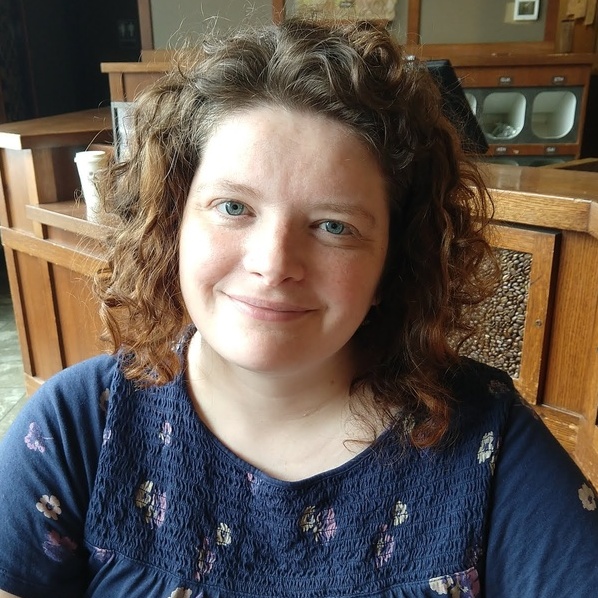
Sarah Wait Zaranek, PhD, MSc
Sarah Wait Zaranek is CEO and Chief Scientist at Curii Corporation and Co-Director Informatics at the Harvard Personal Genome Project (PGP). Dr. Zaranek has been doing scientific computing for the last 20 years. Her current research focus is machine learning in very large genomic medicine cohorts. She has extensive expertise in genomics, open science, machine learning, parallel and distributed computing, and big data. Dr. Zaranek is interested in developing representative cohorts that include individuals that are traditionally underrepresented in genomics to help ensure healthcare can be personalized for everyone. Furthermore, Dr. Zaranek strives to make science and software development more inclusive through hiring practices, organizational culture, speaking and outreach.
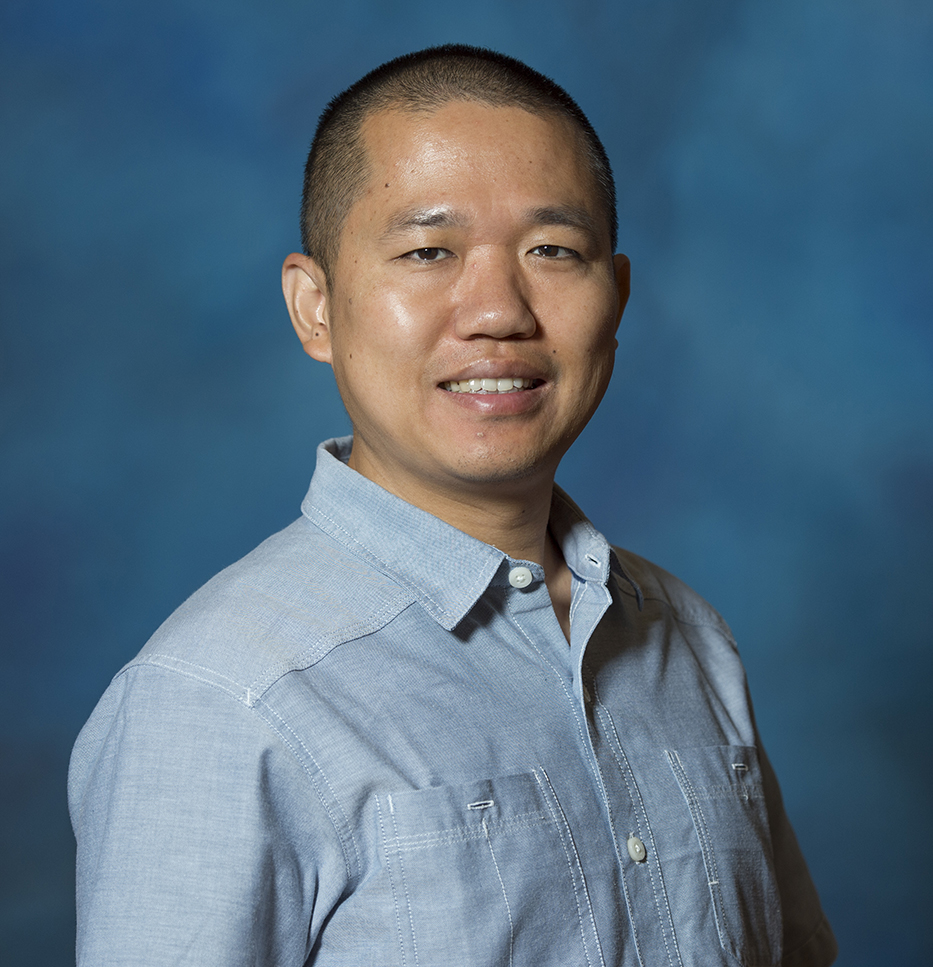
Liang Zhan, PhD
Liang Zhan is an Assistant Professor in the Department of Electrical and Computer Engineering and Department of Bioengineering at the University of Pittsburgh. Dr. Zhan leads the Biomedical Computing lab at Pitts and also serves as the Associate Director for the Pittsburgh Center for Artificial Intelligence Innovation in Medical Imaging, which includes more than 100 multidisciplinary members from Pitts, UPMC, and CMU, working on advancing AI research and clinical translation. Dr. Zhan’s background is in Biomedical Engineering with additional training in radiology and neuroscience research. Dr. Zhan’s main research areas include computational biomedical imaging analysis, artificial intelligence in clinical/translational applications, and big (health) data coupled with machine/deep learning. Dr. Zhan’s research grows primarily on brain MRI to cover many diseases, such as Alzheimer’s disease, Parkinson’s disease, bipolar disorder, depression, and Traumatic Brain Injury, etc.
